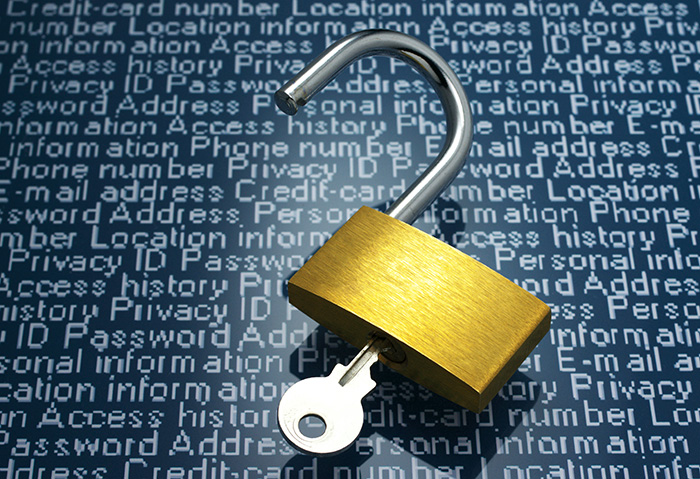Do You Put Too Much of Your Private Information Online? Take the Quiz
 It has been roughly one year and seven months since we first heard of a surveillance system in the U.S. that gathers the stuff we do or share online. Given that report, it's natural for anyone to wonder if privacy really is possible on the Internet. Most adults in the United States now believe that they have lost control over how personal information is collected and used by companies, and who can blame them?
It has been roughly one year and seven months since we first heard of a surveillance system in the U.S. that gathers the stuff we do or share online. Given that report, it's natural for anyone to wonder if privacy really is possible on the Internet. Most adults in the United States now believe that they have lost control over how personal information is collected and used by companies, and who can blame them?
The problem here is that this belief can tend to make us a bit complacent, thinking that there’s not much that can be done anyway. The good thing, though, is that this can be the wake-up call we need to improve our habits to protect our privacy online. Sometimes, what we think are regular or common online habits could make us vulnerable to entities that aim to invade our privacy.
Find out if you are sharing too much online by answering this quiz honestly:
- People are getting agitated about the new policy of a popular social networking site that just came out. You:
A) Ignore the fuss. Save that drama for something really important—like that cliffhanger episode of the TV show you’re following.
B) Follow the issue on several news sites, social media sites, and blogs.
C) Read everything you can find that’s related to the policy and immediately change your settings, if possible.
- A new mobile gaming app similar to your favorite popped up on the popular free apps list of your platform's app store and it seems a couple of your friends have downloaded it too. You will:
A) Download it, no questions asked. It's free and your friends are playing. That's all you need to know.
B) Double check what sorts of permissions it needs then download it.
C) Look at reviews and ratings, check the permissions, then decide if you should download.
- You sign up for a new online account and it’s asking how you want to secure your account. You:
A) Enter the password you use for all accounts. One password to rule them all, amirite?
B) Use a different password with a strong mix of characters and symbols.
C) Put in a strong mix of characters and symbols then check for other available security options like mobile 2FA authorization or security questions.
- Someone sent you an email that says you won a free dinner or online shopping voucher. All you need to do is fill the form in the link attached and you’re good to go, you:
A) Provide your details and choose a hashtag for your Instagram post. Free dinner, woohoo!
B) Check if a promo really exists and how you won. Click the link and fill in your details.
C) Don't even bother, since you know that you never signed up for any online raffle or contest.
- You heard that the app you’re using has been quietly gathering data that it's not supposed to access. You:
A) Read the news, and decide that it doesn't matter. The app is useful.
B) Check the data that's being gathered before deciding on what to do.
C) Delete the app. Your trust is lost.
- The package that you ordered online just arrived! You have been waiting to brag about this, so now you:
A) Post a photo of the box with your name and address so people know you really did buy it. (#blessed indeed!).
B) Post a photo of the box with the address blurred out but your whole name intact since people know it anyway.
C) Post a photo of the box but block all the details with your face.
- You just got a new job and can’t wait to let everyone know about it before you resign from your current one. You:
A) Post a photo of yourself in the new workplace on Instagram, Facebook, and Twitter.
B) Post a series of subtweets and shared links about careers and work choices.
C) Do nothing online or be cryptic with a quote about new beginnings.
If you answered with mostly As:
Your data is out there.
Check your privileges, literally. Check the permissions you give your mobile apps, all your social account settings, and the online services you signed up for. If you’re willing to give your information because someone emailed you about a promo, you’re likely to give your credit card details on the next link that comes in.
If you answered with mostly Bs:
Fairly safe, sailor.
It’s great to know that you at least try before you jump into the next big social thing online. Be reminded, however, that the small traces you leave online—yes, even your middle name—can go a long way for cybercriminals.
If you answered with mostly Cs:
Closed like a clam.
You are closed as a clam when it comes to your data. That’s a good behavior to start with. Just be sure to always be updated about the latest scams cybercriminals may come up with the next time around!
As we celebrate Data Privacy this week, be aware of why it's important to protect the information you share online.
Like it? Add this infographic to your site:
1. Click on the box below. 2. Press Ctrl+A to select all. 3. Press Ctrl+C to copy. 4. Paste the code into your page (Ctrl+V).
Image will appear the same size as you see above.
последний
- LLM as a Judge: Evaluating Accuracy in LLM Security Scans
- The Silent Leap: OpenAI’s New ChatGPT Agent Capabilities and Security Risks
- Trend Micro State of AI Security Report 1H 2025
- The Road to Agentic AI: Navigating Architecture, Threats, and Solutions
- Exploiting Trust in Open-Source AI: The Hidden Supply Chain Risk No One Is Watching
 Trend Micro State of AI Security Report 1H 2025
Trend Micro State of AI Security Report 1H 2025 AI in the Crosshairs: Understanding and Detecting Attacks on AWS AI Services with Trend Vision One™
AI in the Crosshairs: Understanding and Detecting Attacks on AWS AI Services with Trend Vision One™ Trend 2025 Cyber Risk Report
Trend 2025 Cyber Risk Report The Road to Agentic AI: Navigating Architecture, Threats, and Solutions
The Road to Agentic AI: Navigating Architecture, Threats, and Solutions